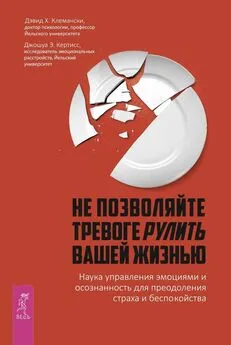Томас Гилович - Наука мудрости
- Название:Наука мудрости
- Автор:
- Жанр:
- Издательство:Индивидуум паблишинг
- Год:2019
- ISBN:978-5-6040721-7-2
- Рейтинг:
- Избранное:Добавить в избранное
-
Отзывы:
-
Ваша оценка:
Томас Гилович - Наука мудрости краткое содержание
Эта книга – для всех, кто интересуется психологией и социальным поведением людей. Она будет полезна и специалистам: исследователям, преподавателям и практикам.
Наука мудрости - читать онлайн бесплатно ознакомительный отрывок
Интервал:
Закладка:
35. Неадекватность тезиса о банальности зла? См.: Cesarani, D. (2006). Becoming Eichmann: Rethinking the life, crimes and trial of a “desk murderer” . Cambridge, MA: Da Capo Press. Goldhagen, D.J. (1996). Hitler’s willing executioners: Ordinary Germans and the Holocaust .
36. Ничем не примечательная жизнь большинства рядовых виновников Холокоста. Browning, C.R. (1992). Ordinary men: Reserve Police Battalion 101 and the final solution in Poland . New York: Aaron Asher. Lifton, R.J. (1986). The Nazi doctors: Medical killing and the psychology of genocide . New York: Basic Books.
37. Тихие герои. Stein, A. (1991). Quiet heroes: True stories of the rescue of the Jews by Christians in Nazi-occupied Holland . New York: New York University Press.
38. «Белая роза». Hanser, R. (1979). A Noble Treason - The Revolt of the Munich Students Against Hitler. New York: G. P. Putnam’s Sons . (Пропущенная в американском издании ссылка добавлена по просьбе авторов в русском издании. — Прим. науч. ред. )
5. Замочные скважины, линзы и фильтры
1. Цитаты о вторжении. Chandrasekaran, R. (2007). Imperial life in the Emerald City. New York: Vintage Books.
2. Цитаты об оккупации. Chandrasekaran. (2007).
3. Семь плюс/минус два. Miller, G.A. (1956). The magical number seven, plus or minus two: Some limits on our capacity for processing information. Psychological Review, 63 , 81–97.
4. Мы впервые услышали такое объяснение распространенных ошибок суждения от экономиста Мэтью Рабина из Калифорнийского университета (теперь он в Гарварде).
5. Эксперимент про Линду. Tversky, A. & Kahneman, D. (1983). Tversky, A. & Kahneman, D. (1983). Extensional versus intuitive reasoning: The conjunction fallacy in probability judgment. Psychological Review, 90 , 293–315.
6. Gould, S.J. (1988). The streak of streaks . New York: New York Review of Books.
7. Позитивное тестирование. Klayman, J. & Ha, Y.W. (1987). Confirmation, disconfirmation, and information in hypothesis testing. Psychological Review, 94 , 211–222.
8. Проверка того, вредят или помогают победе физические упражнения накануне теннисных матчей. Crocker, J. (1982). Biased questions in judgment of covariation studies. Personality and Social Psychology Bulletin, 8 , 214–220.
9. Корень всякой тенденциозности. Lilienfeld, S. (2007). Presentation given at the Harriet Elliott Lecture Series, University of North Carolina, Greensboro, NC.
10. Восточная и Западная Германии. Tversky, A. (1977). Features of similarity. Psychological Review, 84 , 327–352.
11. Выбор и отсев. Shafir, E. (1993). Choosing versus rejecting: Why some options are both better and worse than others. Memory and Cognition, 21 , 546–556.
12. Тестирование на ферментную недостаточность. Ditto, P.H. & Lopez, D.F. (1992). Motivated skepticism: Use of differential decision criteria for preferred and nonpreferred conclusions. Journal of Personality and Social Psychology, 63 , 568–584.
13. Цитата из Бэкона. Bacon, F. (1899). Advancement of learning and the novum organum (rev. ed.). New York: Colonial Press. (Первоначально опубликована в 1620 г.)
14. Lord, C., Ross, L. & Lepper, M.R. (1979). Biased assimilation and attitude polarization: The effects of prior theories on subsequently considered evidence. Journal of Personality and Social Psychology, 37 , 2098–2109.
15. Подумать о противоположной стратегии. Milkman, K.L., Chugh, D. & Bazerman, M.H. (2009). How can decision making be improved? Perspectives on Psychological Science, 4 , 379–385.
16. Решение о покупке «Снэппла»: Finkelstein, S. (2003). Why smart executives fail . New York: Portfolio.
17. Рост числа канонизаций. Zaleski, P. (2006, March). The saints of John Paul II. First Things . Retrieved from http://www.firstthings.com/article/2007/01/the-saints-of-john-paul-ii-46/.
18. «До-вскрытие». Klein, G. (2009). Streetlights and shadows: Searching for the keys to adaptive decision making . Cambridge, MA: MIT Press.
19. Знать, где выход. Dawes, R.M. (1988). Rational choice in an uncertain world . San Diego: Harcourt.
20. Насколько хорошо мы знаем, что думают о нас другие. Kenny, D.A. & De Paulo, B.M. (1993). Do people know how others view them? An empirical and theoretical account. Psychological Bulletin, 114 , 145–161. Цит. по: Kenny, D.A. (1994). Interpersonal perception: A social relations analysis (p. 159). New York: Guilford Press.
21. Знание нашего статуса в группе. Anderson, C., Srivastava, S., Beer, J., Spataro, S.E. & Chatman, J.A. (2006). Knowing your place: Self-perceptions of status in social groups. Journal of Personality and Social Psychology, 91 , 1094–1110.
22. Ложные убеждения и предрассудки. Gilovich, T. (1991). How we know what isn’t so . Why people believe weird things . New York: Holt.
23. Не искушать судьбу. Risen, J.L. & Gilovich, T. (2007). Another look at why people are reluctant to exchange lottery tickets. Journal of Personality and Social Psychology, 93 , 12–22. Risen, J.L. & Gilovich, T. (2008). Why people are reluctant to tempt fate. Journal of Personality and Social Psychology, 95 , 293–307. Tykocinski, O.E. (2008). Insurance, risk, and magical thinking. Personality and Social Psychology Bulletin, 34 , 1346–1356. Van Wolferen, J., Inbar, Y. & Zeelenberg, M. (2013). Magical thinking in predictions of negative events: Evidence for tempting fate but not for a protection effect. Judgment and Decision Making, 8 , 44–53.
24. Кажущиеся сбывшимися пророчества. Gilovich. (1991). How we know what isn’t so .
25. Всеобщее неведение. Katz, D. & Allport, F.H. (1931). Student attitudes . Syracuse, NY: Craftsman. Kuran, T. (1995). Private truths, public lies: The social consequences of preference falsification . Cambridge, MA: Harvard University Press. Miller, D.T. (2006). Social psychology: An invitation . Belmont, CA: Thomson.
26. Всеобщее неведение и потребление алкоголя в студенческих городках. Prentice, D.A. & Miller, D.T (1993). Pluralistic ignorance and alcohol use on campus: Some consequences of misperceiving the social norm. Journal of Personality and Social Psychology, 64 , 243–256. Perkins, H.W. & Berkowitz, A.D. (1986). Perceiving the community norms of alcohol use among students: Some research implications for campus alcohol education programming. Journal of Addictions, 21 , 15–31.
27. Исключение всеобщего неведения в отношении употребления алкоголя. La Brie, J.W., Hummen, J.F., Neighbors, C. & Pedersen, E.R. (2008). Live interactive group-specific normative feedback reduces misperceptions and drinking in college students: A randomized cluster trial. Psychology of Addictive Behaviors, 22 , 141–148.
28. «Выгорание». Maslach, C. (1982). Burnout: The cost of caring . Englewood, Cliffs, NJ: Prentice Hall, p. 11–12. Цит. по Miller, D.T. (2006). Social psychology: An invitation . Belmont, CA: Thomson.
29. Группомыслие. Janis, I.L. (1972). Victims of groupthink . Boston: Houghton Mifflin. Janis, I.L. (1982). Groupthink: Psychological studies of policy decisions and fiascos (2nd ed.). Boston: Houghton Mifflin.
30. Инцестуальный резонанс. http://www.cybercollege.com/ia.htm (July 29, 2013).
31. Эффект общего знания. Stasser, G. (1999). The uncertain role of unshared information in collective choice. In: L.L. Thompson, J.M. Levine & D.M. Messick (eds.), Shared cognition in organizations: The management of knowledge (pp. 46–69). Mahwah, NJ: Erlbaum. Stasser, G. & Titus, W. (1985). Polling of unshared information in group decision making: Biased information sampling during discussion. Journal of Personality and Social Psychology, 48 , 1467–1478.
32. Преодоление эффекта общего знания. Thompson, L.L. (2000). Making the team: A guide for managers . Upper Saddle River, NJ: Prentice-Hall.
ЧАСТЬ 2: Прикладная мудрость
6. Наука счастья
1. Цитата из Зупана. Zupan, M. (2006). Gimp: When life deals you a crappy hand, you can fold — or you can play . New York: HarperCollins.
2. Психологическое самочувствие пациентов с травмами позвоночника. Hall, K.M., Knudson, S.T., Wright, J., Charlifue, S.W., Graves, D.E. & Warner, P. (1999). Follow-up study of individuals with high tetraplegia (C1-C4) 14 to 24 years post-injury. Archives of Physical Medicine and Rehabilitation, 80 , 1507–1513.
3. Предсказание собственного субъективного благополучия со стороны медработников. Gerhart, K.A., Koziel-McLain, J., Lowenstein, S.R. & Whiteneck, G.G. (1994). Quality of life following spinal cord injury: Knowledge and attitudes of emergency care providers. Annals of Emergency Medicine, 23 , 807–812.
4. Просмотр телевидения и счастье. Kahneman, D., Krueger, A.B., Schkade, D.A., Schwarz, N. & Stone, A.A. (2004). A survey method for characterizing daily life experience: The day reconstruction method. Science, 306 , 1776–1780. Killingsworth, M.A. & Gilbert, D.T. (2010). A wandering mind is an unhappy mind. Science, 330 , 932.
5. Воспитание детей. Eibach, R.P. & Mock, S.E. (2011). Idealizing parenthood to rationalize parental investments. Psychological Science, 22 , 203–208. Jones, R.K. & Brayfield, A. (1997). Life’s greatest joy? European attitudes toward the centrality of children. Social Forces, 75 , 1239–1270.
6. Больше счастья в Калифорнии? Schkade, D. & Kahneman, D. (1998). Does living in California make people happy? A focusing illusion in judgments of life satisfaction. Psychological Science, 9 , 340–346.
7. Деньги и счастье. Aknin, L.B., Norton, M.I. & Dunn, E.W. (2009). From wealth to well-being? Money matters, but less than people think. Journal of Positive Psychology, 4 , 523–527. Cone, J. & Gilovich, T. (2010). Understanding money’s limits: People’s beliefs about the income-happiness correlation. Journal of Positive Psychology, 5 , 294–301. Stevenson, B. & Wolfers, J. (2008). Economic growth and subjective well-being: Reassessing the Easterlin paradox (No. w14282). Cambridge, MA: National Bureau of Economic Research.
Читать дальшеИнтервал:
Закладка:


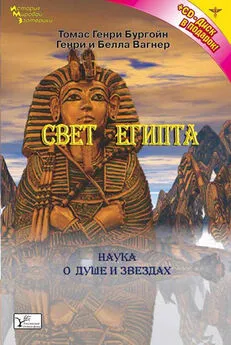
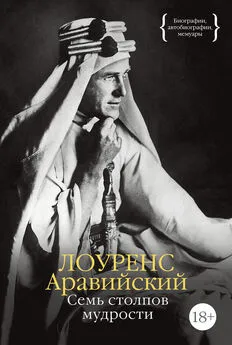
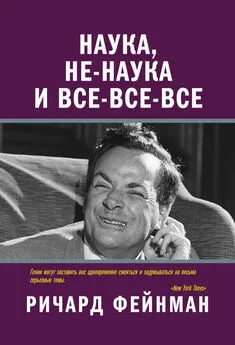
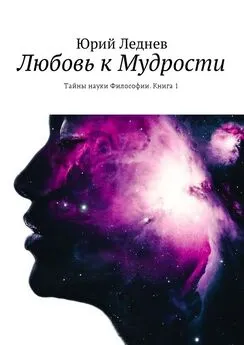
![Журнал Наука и Техника (НиТ) - «Наука и Техника» [журнал для перспективной молодежи], 2007 № 04 (11)](/books/1061248/zhurnal-nauka-i-tehnika-nit-nauka-i-tehnika.webp)
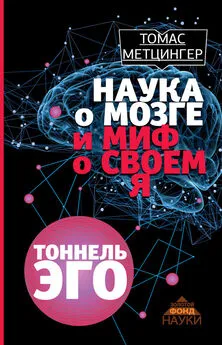
![Томас Лоуренс - Семь столпов мудрости [litres]](/books/1144383/tomas-lourens-sem-stolpov-mudrosti-litres.webp)
